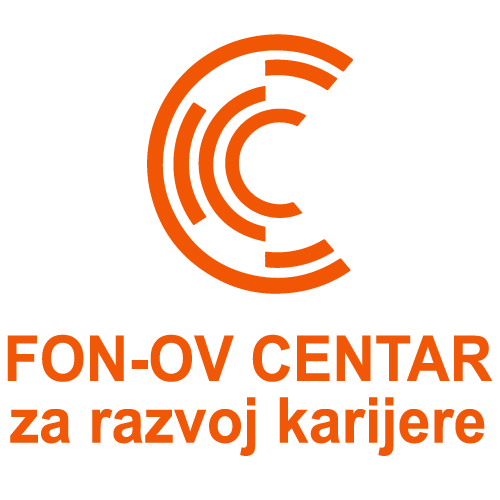What is PCI DSS Payment Card Industry Data Security Standard Complete Guide
Since its formation, PCI DSS has gone through several iterations in order to keep up with changes to the online threat landscape. While the basic rules for compliance have remained constant, new requirements are periodically added. Still, most merchants seek to avoid having to pay these fines by ensuring that they comply with the PCI DSS standard. The PCI Security Standards Council maintains a program to certify companies and individuals to perform assessment activities. If you are still unsure where your organization falls in the world of PCI, don’t hesitate to contact us. From Fortune 50 cloud providers to boutique platforms, Weaver has the technical and business expertise to help your organization on its PCI DSS journey.
Understanding PCI DSS: A Guide to the Payment Card Industry Data Security Standard
- You’re still responsible for PCI DSS compliance—even if someone else is handling your infrastructure or transactions.
- Ensuring that firewalls and other security measures are up-to-date and functioning correctly helps in identifying and mitigating vulnerabilities before they can be exploited.
- If firewalls are correctly implemented according to Requirement 1, they should also comply with Requirement 2.
- The cost of a ROC is higher due to additional testing and reporting requirements for the QSA company.
Additionally, if a merchant suffers a data breach that compromises cardholder information, they may be moved to a higher PCI compliance level. Yes, PCI DSS compliance is required for any organization that accepts credit card payments—which is to say that virtually any organization that sells anything or accepts donations must adhere to the standard. There are varying compliance costs between a SAQ-D and ROC based on the level of testing required by an independent Qualified Security Assessor (QSA) company like Weaver. A SAQ-D can be completed independently by your organization or through using a QSA company to facilitate the process through testing and inquiry. The cost of a ROC is higher due to additional testing and reporting requirements for the QSA company.
As a service provider should we perform a Self-Assessment Questionnaire-D (SAQ-D) or Report on Compliance (ROC)?
- J.P. Morgan offers the expertise and solutions you need to implement and maintain strong security measures.
- Each of these principal requirements, in turn, consist of more detailed security requirements.
- The use of logging mechanisms is critical in preventing, detecting and minimising the impact of data compromise.
Encrypting stored cardholder data ensures that even if accessed without authorization, it remains unreadable and secure. This encryption should be applied not only to stored data but also to data transmitted over public networks. PCI DSS defines different compliance levels depending on the volume of transactions a business processes annually.
Level-2, -3 or -4 organisations can use an SAQ, comprising yes/no questions, to assess their level of cardholder data security. Whether developed internally or externally, all software applications should be developed securely in accordance with the PCI DSS. They should also be based on industry standards and/or best practices and incorporate information security throughout their development life cycle. The PCI DSS framework is structured around 12 fundamental principles, further detailed into 78 standards and 281 specific controls.
Strong cryptography and security protocols (e.g. TLS, IPSec, SSH, etc.) should be used to safeguard sensitive cardholder data during transmission over open, public networks that malicious individuals could easily access. Encryption, truncation, masking and hashing are critical components of cardholder data protection. Without access to the proper cryptographic keys, encrypted data will be unreadable and unusable by criminal hackers, even if they manage to circumvent other security controls. The PCI DSS is a standard not a law, and is enforced through contracts between merchants, acquiring banks that process payment card transactions and the payment brands. All merchants and service providers that process, transmit or store cardholder data must comply with the PCI DSS. Compliance is not a one-time event but a continuous process that requires regular monitoring, assessments, and updates to security practices.
Maintain a Vulnerability Management Program
Our open-source ecosystem provides access to on-chain and secure identity verification solutions that enhance user experience and reduce onboarding friction through reusable and interoperable Gateway Passes. The introduction of globally accredited debit and credit card payment systems has revolutionized the way we make transactions, offering convenience and efficiency. However, this progress has also paved the way for sophisticated financial crimes, challenging the very security mechanisms that underpin these systems. In the early 1900s, there was no standardized or globally recognized payment system for debit or credit cards.
Level 4: Businesses with Less than 20,000 E-Commerce Transactions or up to 1 Million Other Transactions Annually
Compliance validation is conducted through a Qualified Security Assessor (QSA), by completing a self-assessment questionnaire (SAQ) or other approved methods. By complying with PCI DSS, businesses demonstrate their commitment to protecting customer data and reducing data security risks. When access control systems are properly integrated with video surveillance, they deliver a robust security framework that aligns with PCI compliance standards. The PCI SSC also provides education and awareness through industry events and PCI SSC’s training to help businesses comply. Any transactions involving cardholder data must comply with pci dss stand for PCI DSS standards. Devices that capture payment card data via direct physical interaction with the card must be protected from tampering and substitution should be periodically inspected.
Make the right decisions with the latest insights and advice on business growth and payments innovation. We apply the power of forensic intelligence and advanced technology to offer true security to 2,000+ customers in 40+ countries. View our range of bestselling products and services to find out how we can help you become PCI compliant today. As a QSA company, IT Governance provides services to support you at each stage of your organisation’s PCI DSS compliance project. Merchants that process more than 6 million transactions per year, or those whose data has previously been compromised. Procedures should be implemented to distinguish between on-site personnel and visitors.
Assign a unique ID to each person with computer access
Additionally, we’ll discuss the different levels of PCI DSS compliance, helping organizations understand the specific requirements they must meet. By proactively addressing security vulnerabilities, investing in enhanced security measures, and achieving PCI DSS compliance, Global Payments demonstrated a commitment to rebuilding trust. The company’s commitment to transparency, investment in security, and achieving PCI DSS compliance played pivotal roles in regaining customer confidence and rebuilding its reputation in the payment processing industry. Maintaining PCI DSS compliance offers other long-term advantages as technology and security landscapes evolve. Adhering to PCI DSS requirements mean that organizations stay vigilant and are better equipped to prevent advanced and sophisticated attacks and can more quickly adapt to evolving cyber threats.
This comprehensive platform is designed to simplify the compliance process, reduce risks, and ensure that you’re always one step ahead in your security posture. Merchants in the Level 1 category must have their PCI compliance program reviewed annually by an independent “Qualified Security Auditor” (QSA). Merchants in the lower levels can perform this review themselves using a Self-Assessment Questionnaire (SAQ). The SAQ determines what information the merchant collects and where the merchant stores, transmits, and processes that data.
It is a set of technical security requirements designed to ensure that all government organisations, businesses and non-profits accepting, processing, storing, or transmitting credit card information maintain a secure environment. These standards are established by the PCI Security Standards Council (PCI SSC), and their objective is to reduce the risk of security breaches, leading to sensitive data compromise, ultimately resulting in payment fraud. F5 offers a suite of application security products, services, and solutions to help your organization achieve and maintain PCI DSS compliance.
By implementing and maintaining these 12 requirements, organizations can enhance the security of cardholder data and reduce the risk of data breaches and financial fraud. For merchants processing credit card transactions, PCI compliance is not just a recommendation; it’s a mandatory measure to ensure the security of cardholder data. Compliance involves establishing a robust information security policy that mandates storing sensitive card data on a secure network, distinctly segregated from public networks.
PCI SSC Training
PCI DSS adherence also fosters a security-centric culture within an organization that extends beyond compliance, encouraging ongoing efforts to strengthen data security practices. It’s important to note that experiencing a data breach or other cybersecurity incident may elevate an organization to a higher compliance level, requiring more stringent security measures. The PCI SSC offers a range of resources, including documentation, tools, and training, to help businesses achieve and maintain PCI compliance.

